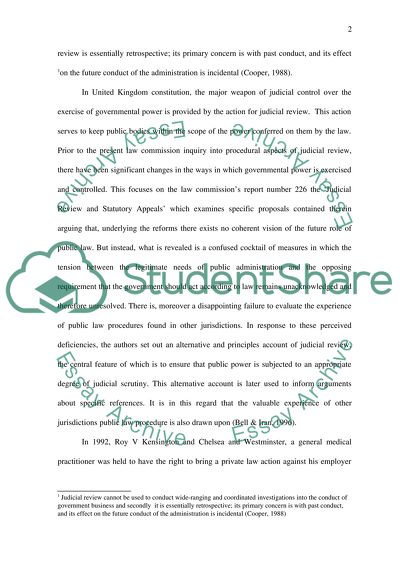Cite this document
(Judicial Review in Perspective Term Paper Example | Topics and Well Written Essays - 2021 words, n.d.)
Judicial Review in Perspective Term Paper Example | Topics and Well Written Essays - 2021 words. Retrieved from https://studentshare.org/law/1542916-critically-examine-and-assess-the-importance-in-the-development-of-judicial-review-of-the-case-roy-v-kensington-chelsea-westminster-family-practitioner-com
Judicial Review in Perspective Term Paper Example | Topics and Well Written Essays - 2021 words. Retrieved from https://studentshare.org/law/1542916-critically-examine-and-assess-the-importance-in-the-development-of-judicial-review-of-the-case-roy-v-kensington-chelsea-westminster-family-practitioner-com
(Judicial Review in Perspective Term Paper Example | Topics and Well Written Essays - 2021 Words)
Judicial Review in Perspective Term Paper Example | Topics and Well Written Essays - 2021 Words. https://studentshare.org/law/1542916-critically-examine-and-assess-the-importance-in-the-development-of-judicial-review-of-the-case-roy-v-kensington-chelsea-westminster-family-practitioner-com.
Judicial Review in Perspective Term Paper Example | Topics and Well Written Essays - 2021 Words. https://studentshare.org/law/1542916-critically-examine-and-assess-the-importance-in-the-development-of-judicial-review-of-the-case-roy-v-kensington-chelsea-westminster-family-practitioner-com.
“Judicial Review in Perspective Term Paper Example | Topics and Well Written Essays - 2021 Words”, n.d. https://studentshare.org/law/1542916-critically-examine-and-assess-the-importance-in-the-development-of-judicial-review-of-the-case-roy-v-kensington-chelsea-westminster-family-practitioner-com.


